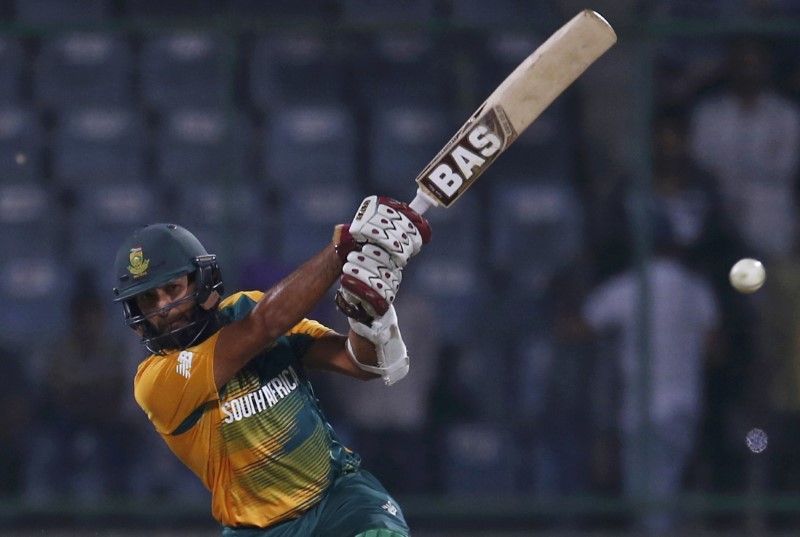By Nick Said
JOHANNESBURG (Reuters) - Hashim Amla is set to join an elite group of South African cricketers when he makes his 100th test appearance in the third and final match of the series against Sri Lanka in Johannesburg starting on Thursday.
The elegant right-hander has been battling poor form in recent months but his influence on the side remains unquestioned as he becomes the eighth player from South Africa to notch up a century of test caps.
One of the coolest customers in cricket and a hugely popular figure in the dressing room, Amla has established himself in the pantheon of modern South African greats, equally as influential as the likes of Jacques Kallis, Graeme Smith and AB de Villiers.
His recent dip in form, leading him to score just 195 runs in his last five tests, has dropped his average below 50, but with 25 tons, including 311 not out against England in 2012, he has been a key part of the team's success in the last decade.
"He has a wonderful sense of calm," South African opener Stephen Cook, who played with Amla in the national under-19 side, told reporters.
"When a situation becomes tricky or some of the players become a bit hot-headed, Hashim will be the guy who'll bring balance back.
"He contributes so much, he starts with 30 runs before he even comes in to bat."
The 12 years since Amla made his test debut have not been without challenges, his technique was questioned early on after a faltering start to his test career, while 12 months ago he resigned as captain after a home series loss to England.
A devout Muslim, he has also had to endure racial and religious slurs, and was infamously called "the terrorist" live on air by Australian cricketer-turned-commentator Dean Jones during a test against Sri Lanka in 2006.
It was a slur repeated by a fan in Hobart during the Australia series last November, but none of these incidents have managed to ruffle the man dubbed the 'Silent Warrior' by his South African team mates.
"He's a fantastic person. You can look up the stats and read all the records but that only tells half of the tale," Cook added.

"The person behind the batsman is more important to me. I was taught you're a human being first and then a cricketer. Hashim epitomises that."